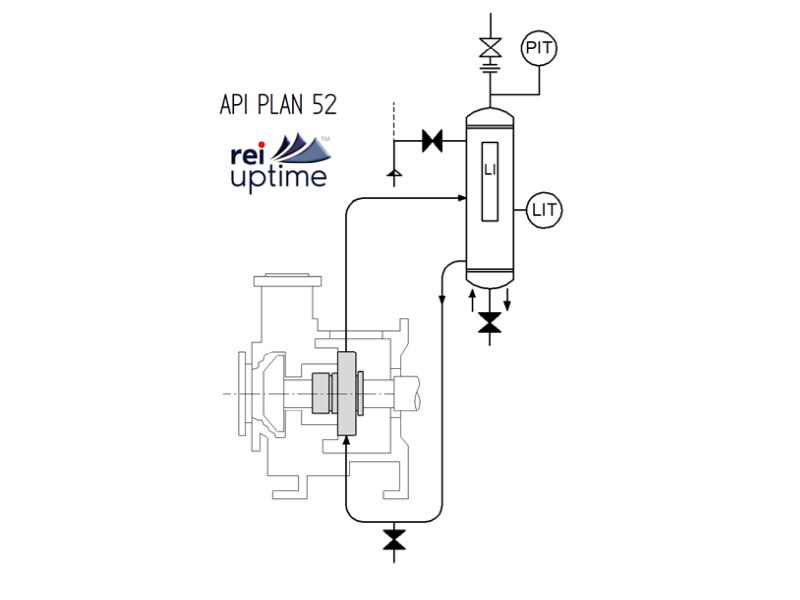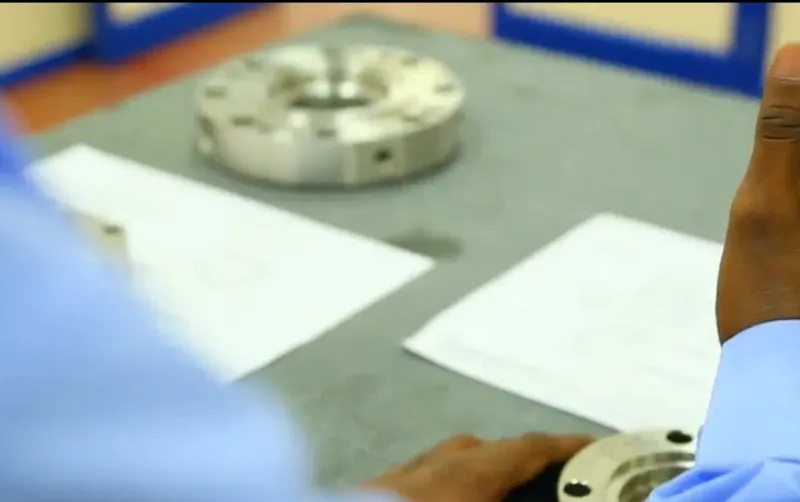

September 17, 2024
Improving Pump Reliability: A Guide to Mechanical Seals for Centrifugal Pumps
Centrifugal pumps are widely used in industries such as chemical processing, water treatment, and manufacturing for their ability to efficiently move fluids. An essential component that ensures the reliable operation of these pumps is the mechanical seal. In this article, we’ll dive into the workings of centrifugal pump mechanical seals and answer key questions related to their functionality, types, and advantages.
What are Centrifugal Pumps?
Centrifugal pumps are a type of pump that uses a rotating impeller to move fluids. The impeller spins, creating centrifugal force, which pushes the fluid from the pump’s inlet to the outlet. This design is efficient for transferring liquids and is commonly used in applications where high flow rates are required.
Why are centrifugal pumps useful? Centrifugal pumps are favored for their simplicity, efficiency, and ability to handle large volumes of fluid. They are also capable of operating over a wide range of flow rates and pressures, making them ideal for applications like water distribution, HVAC systems, and industrial fluid handling.
How does a Centrifugal Pump Work?
In simple terms, centrifugal pumps use an impeller—a spinning component housed within the pump casing. As the impeller rotates, it draws in fluid through the pump inlet and pushes it outward through the impeller’s vanes, creating a high-velocity fluid stream that exits the pump. This movement generates both flow and pressure, allowing the pump to transport fluids through a piping system.
What is a Mechanical Seal in a Centrifugal Pump?
A mechanical seal is a device that prevents leakage of the pumped fluid along the rotating shaft of a centrifugal pump. It typically consists of two flat surfaces, one rotating with the shaft and the other stationary in the pump housing. These surfaces are pressed together to form a tight seal that blocks fluid from leaking out along the shaft while allowing the shaft to rotate.
What are the Two Types of Shaft Seals Used for Centrifugal Pumps?
There are two primary types of shaft seals used in centrifugal pumps:
- Packing Seals: Packing involves wrapping a soft material, such as braided fibers or rubber, around the shaft to create a seal. This method is relatively simple and inexpensive, but it requires frequent maintenance and adjustment.
- Mechanical Seals: Mechanical seals, on the other hand, consist of two precisely machined surfaces (one stationary and one rotating) that form a highly effective seal. These seals provide better performance, reduced leakage, and longer service life compared to packing.
Which is an Advantage a Mechanical Seal has over Packing in a Centrifugal Pump?
Mechanical seals offer several advantages over packing seals:
- Reduced leakage: Mechanical seals create a more effective barrier, minimising fluid loss and reducing the risk of contamination.
- Lower maintenance: Unlike packing, which needs regular tightening and replacement, mechanical seals are generally more reliable and require less maintenance.
- Energy efficiency: Mechanical seals create less friction than packing, leading to lower energy consumption and heat generation, which translates to improved operational efficiency.
Why Are Mechanical Seals Being Installed in Pumps?
Mechanical seals are installed in pumps to:
- Improve efficiency: By reducing fluid leakage, mechanical seals help maintain the desired pressure and flow rate within the pump, ensuring optimal performance.
- Reduce maintenance costs: Mechanical seals last longer than packing and require less frequent attention, which can lead to lower operational and maintenance costs.
- Ensure environmental compliance: In applications where fluid leakage can be hazardous (such as chemical or oil industries), mechanical seals help meet environmental regulations by effectively containing fluids.
What is the Problem with Mechanical Seals in Pumps?
While mechanical seals are highly effective, they do have some potential issues:
- Cost: Mechanical seals are more expensive upfront than packing.
- Complexity: They are more complex to install and require precise alignment. Improper installation can lead to premature seal failure.
- Wear and tear: The seal faces are subject to wear over time, especially if there is contamination in the fluid, leading to eventual failure and the need for replacement.
- Temperature sensitivity: In high-temperature applications, mechanical seals can experience thermal expansion, which may cause leaks or failures if not designed properly for the operating conditions.
How is a Centrifugal Pump Different from a Normal Pump?
The main difference between centrifugal pumps and other types of pumps, such as positive displacement pumps, lies in their operating principle:
- Centrifugal pumps use centrifugal force generated by a rotating impeller to move fluids. They are best suited for continuous, high-flow applications and can handle a wide variety of liquids.
- Positive displacement pumps, on the other hand, move fluids by trapping a fixed amount of liquid and displacing it through the pump outlet. These pumps are ideal for applications requiring precise flow control at high pressures but lower flow rates.
What is a Main Disadvantage of a Centrifugal Pump?
Despite their many advantages, centrifugal pumps do have some drawbacks:
- Poor suction capacity: Centrifugal pumps require the pump casing to be primed with fluid before operation. If the pump is not properly primed, it may lose suction, leading to cavitation and pump damage.
- Limited ability to handle high-viscosity fluids: Centrifugal pumps are less effective when handling thick, viscous liquids, as the increased resistance reduces the efficiency of the impeller.
Centrifugal pump mechanical seals play a crucial role in enhancing pump efficiency and reducing operational issues. While they may have a higher upfront cost and require careful installation, their long-term benefits—including reduced leakage, lower maintenance, and improved energy efficiency—make them the preferred choice for many industrial applications.
By understanding the different types of shaft seals, the advantages of mechanical seals, and the common issues that can arise, you can make more informed decisions when selecting and maintaining centrifugal pumps in your operations. Whether you’re choosing a mechanical seal for its superior performance or a centrifugal pump for its ability to handle high-flow applications, these technologies provide reliable solutions for fluid handling needs.
Contact Us
When it comes to ensuring the long-term reliability and efficiency of your centrifugal pumps, selecting the right mechanical seal is only part of the equation. To optimise pump performance and address any potential issues, partnering with reliability engineering experts can make all the difference.
At Reliability Engineering Industries, we specialise in providing tailored sealing solutions for centrifugal pumps and other industrial equipment. Our team of experienced engineers offers a wide range of services, including:
- Custom seal design and selection: We work closely with clients to recommend the most suitable mechanical seals for their specific applications, taking into account factors like fluid type, operating conditions, and environmental requirements.
- Installation support: Proper installation is critical to the performance of mechanical seals. Our experts provide hands-on support to ensure seals are installed correctly, minimising the risk of early failure or leakage.
- Maintenance and troubleshooting: We offer ongoing maintenance services, including seal inspections and performance evaluations, to extend the lifespan of your equipment and prevent costly downtime.
- Training and consultation: Our team can train your personnel on best practices for seal maintenance and pump operation, ensuring your team is well-equipped to handle any future challenges.
If you're looking to improve the reliability and efficiency of your centrifugal pumps, contact Reliability Engineering Industries today. Our expertise in mechanical sealing technology and pump performance will help you achieve operational excellence and minimise unplanned maintenance costs.
Get in touch with us now to discuss your pump sealing needs and explore how we can optimise your industrial systems for peak performance.
Suggested posts
No items found.




